26 Sept 2020
In the first months of lockdown, BVA guidance meant most practices were only able to deal with emergency cases, and work all but dried up for some. But for the teams at Vets Now Manchester, the coronavirus crisis meant that while some things changed, in many ways everything stayed the same...
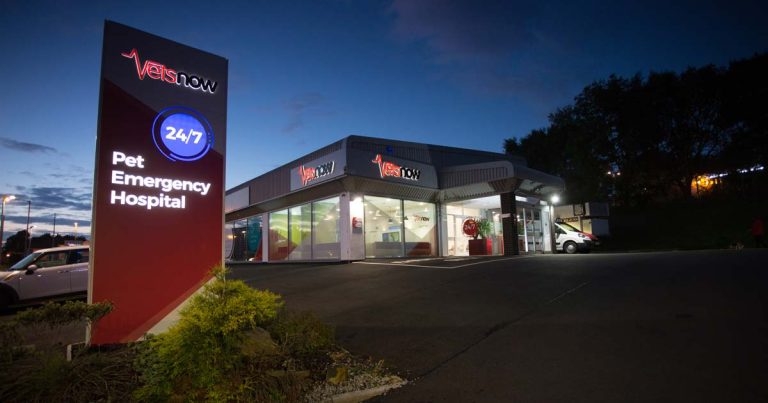
Images © Vets Now
Staff: full-time vets 22 • registered veterinary nurses 28 • practice administrators 12 • animal care assistants 11
Developed on the site of a former Mercedes-Benz garage on the outskirts of Manchester, Vets Now’s hospital site is a high-end facility that’s been busy from the day its doors opened four years ago.
As one of three Vets Now hospital hubs – the others being in Glasgow and Swindon – the site on Bury Old Road not only provides out-of-hours veterinary care for scores of local practices, it effectively serves as an animal A&E department for the whole Greater Manchester area.
The practice also takes non-emergency and critical care (ECC) referrals in a wide range of disciplines, including soft tissue surgery, orthopaedics and internal medicine, meaning the team is always busy.
So, when coronavirus hit and Government-imposed restrictions meant the team needed to be split up – despite there being as much work as ever before – hospital manager Phill Elliott suddenly had some big decisions to make.
Phill explained: “We had to adapt very quickly because we were already an emergency service, so we had to carry on regardless. We didn’t have the option to scale back services as we were always needed.
“That produced some unique challenges for us, so what we ended up doing was split into a two-team structure – we didn’t furlough anyone from the hospital, we all just carried on.
“It was quite an adjustment as every day suddenly became like a weekend. When our normal partner practices close at about 6pm or do shorter hours over the weekend, we get very busy on the emergency side of things.
“The easiest way to explain it is we were suddenly like an A&E ward everyday because we were still open and people we not able to go to their normal practices. We were also taking a lot of calls about jabs and vaccines in the first few weeks of lockdown, but we don’t do routine vaccines as we focus on the emergency side of things.”
Fortunately for Phill, the team at Vets Now Hospital Manchester rose to the challenge “magnificently”, filling in as and where needed. This meant senior referral vets going “back to the clinical floor” and seeing non-emergency OOH cases as the crisis wore on.
Phill added: “I think it is an easy thing for someone like me to say, but the team here have been outstanding in terms of the way they have coped with it.
“They have adjusted to everything we have required of them, and while life has been pretty tough for everyone, these guys have turned up every day, done a good job – they stay when they need to stay, they work late when they have to work late and have dealt with everything fantastically. And everyone has mucked in; even the referral clinicians and the specialists have been seeing regular OOH cases due to the workload we have been seeing.
“And that includes our senior clinical team – our soft tissue specialist John Williams has been seeing all types of emergencies, all of the vets and nurses have been doing that, and that has been key during the past few months.”
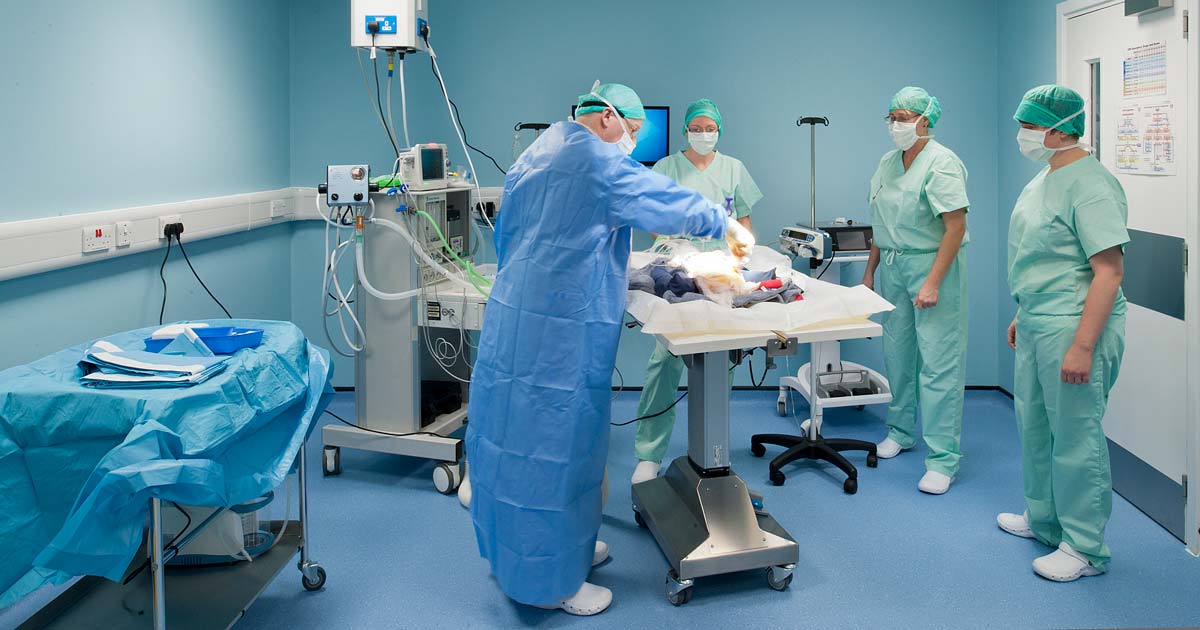
Despite the willingness to chip in as and when needed to meet the workload, restrictions had to be put in place to ensure the almost 80 staff employed by the hospital were kept safe.
This was done by splitting the group into two teams, with “team one” working Sunday, Monday, Tuesday and “team two” working Thursday, Friday, Saturday, with the Wednesday used as a transition day.
Phill added: “So on one week, team one would do the Wednesday and the next week team two would do it. It was a four-three rotation – all of the referral team; all the specialists worked on that Saturday or Sunday with no complaints and no issues – they just rolled up their sleeves and got on with the job.
“I couldn’t have asked for more of the team. The biggest challenge has been the fact that team one never saw team two, so we have spent four months working like that.
“It has been a long time that we have been apart as there has been no crossover; when team one finished on their last day and the next team started, the incoming team would wait in the conference room until team one had left the building.”
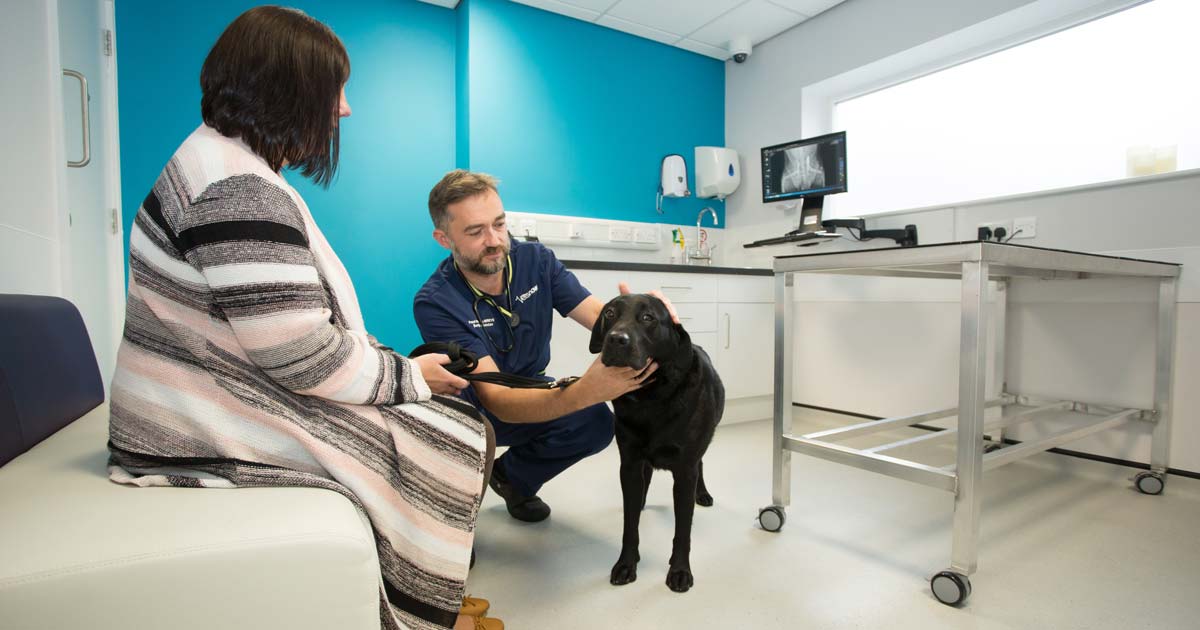
With restrictions slowly easing across the UK, the Manchester team is now back in and working together – and not before time. From the moment the BVA changed its guidance in May to allow non-emergency procedures to take place without the need for a two-month delay, the impact was felt immediately, as Phill explained: “We still saw the same sort of variety of cases in lockdown that we would normally see in emergency. I think the big change was when the RCVS guidelines changed to allow non-emergency procedures to be carried out.
“That fundamentally changed how busy we were and we went from being a pure 24/7 emergency service to seeing a lot of the referral cases back, and that has been the busiest we have been.
“We see a wide range of cases in the hospital, but the volumes went up significantly as the restrictions lifted and people adjusted to the new normal. It is just as well we had robust protocols in place because that happened in a single day; suddenly we had all this extra volume of work, but we managed to still deliver the service expected of us.”
For Phill, managing all this change has been a challenge, but it is a challenge that a prior career in retail had stood him in good stead for.
Managing a large team and delivering a wide range of services where customer service is key was something that comes as second nature to Phill, who spent almost two decades working with Debenhams.
Vets Now Hospital Manchester has two non-clinical managers – with no veterinary background – who support the clinical management team.
And for Phill, this helps him cope with the unique demands of running a 24-hour veterinary hospital. He added: “There are similarities between what I do now and where I came from as this is a sizeable business that employs 80 people and some of the challenges in managing that are the same, whatever industry you are in.
“We employ vets and nurses to be vets and nurses, and having someone non-clinical takes the pressure away from the non-clinical elements of the job. It also supports our clinical people who may want to go into management and when I took the job two years ago, that was just something that sat right with me in terms of my skill set.
“At the hospital we have two non-clinical managers, and a deputy hospital manager who looks after our reception team and also some of the operations side as well. On the clinical side we have a head nurse as well as a lead ECC clinician for our OOH service.”
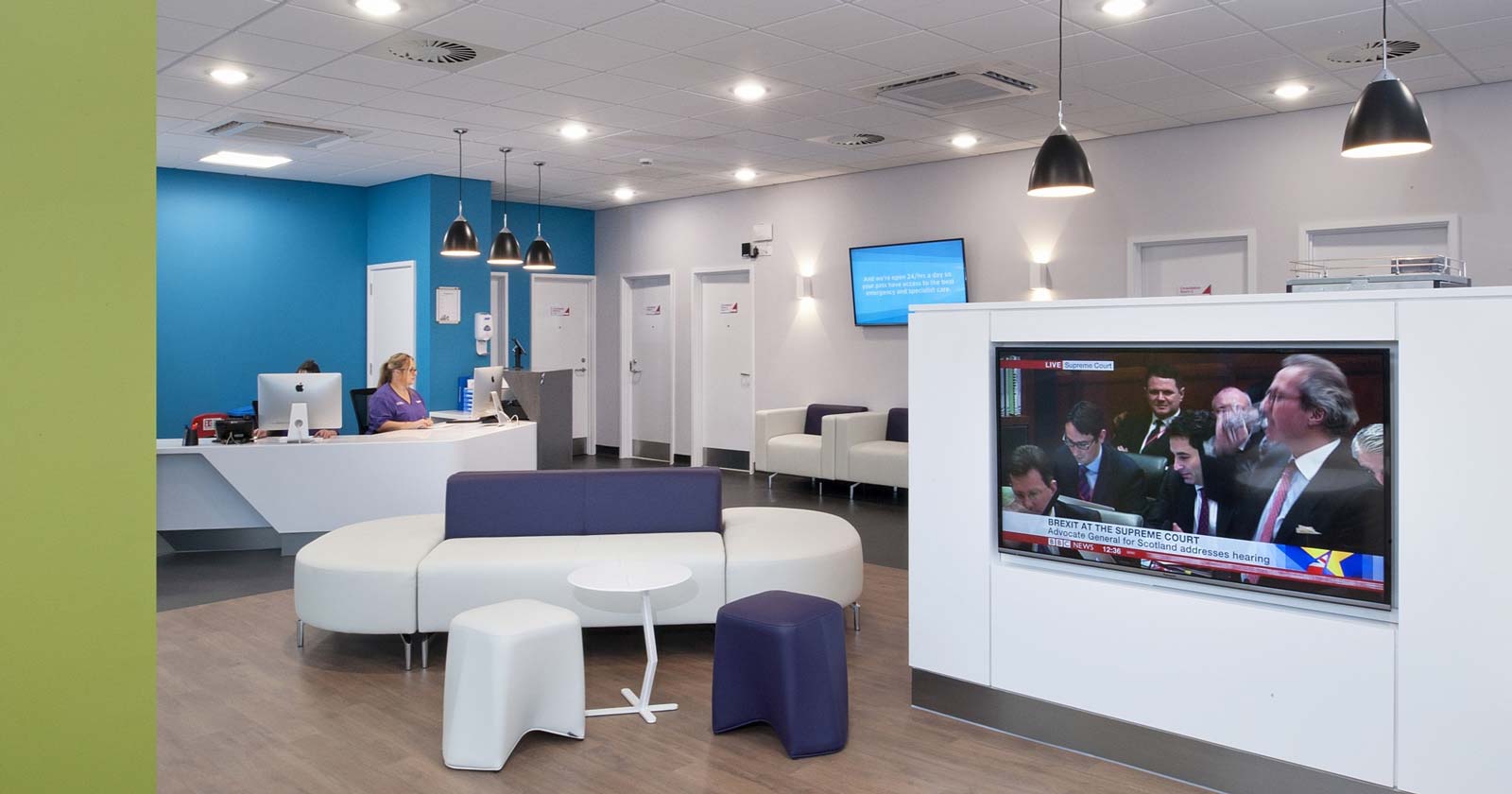
Based on a retail park just off the M60, the 8,000 sq ft practice has good access with plenty of parking for clients, as well as separate cat and dog wards.
It has six consult rooms, two operating theatres, as well as a large ICU/ECC ward, while clinicians have on-site access to digital x-ray, CT and fluoroscopy.
This is all based around a large central prep area. Phill added: “The idea is you can see every area of the hospital from central prep, and that helps teamwork and communication.
“We also use the SmartFlow practice management system, which I must say has really come into its own during the coronavirus crisis. Having forms digitised has been fantastic for us as it makes things really easy – if we were still having to use paper in the same way it would create an awful lot of operational challenges.
“There are separate cat and dog wards, and we have a barrier station next to ICU for patients that need to be separated, but still need intensive care. We do have a separate isolation ward in the hospital as well.
“We also have a vets’ office, management offices, quiet offices and we have a big conference room, which is doubling up as a second staff room at the moment so we can socially distance at lunch.”
The clinical team at the hospital consists of three specialists: Prof Williams (small animal surgery [soft tissue]), Andrew Murdoch (small animal surgery, focusing on soft tissue and orthopaedics) and new recruit Simon Hagley, who is an ECC specialist.
They are backed up in the referral department by two advanced practitioners – Paul Aldridge (small animal surgery) and James McMurrough, who now runs the practice’s extremely busy internal medicine referral service.
Behind that team are 22 other clinicians in the hospital – including 8 OOH vets – while eight interns are also in the hospital – six rotating and two discipline-specific.
Phill said: “The internship is about helping develop the future OOH clinicians or people who take an interest in emergency work. Not everyone wants to do an internship here and then join Vets Now, but we provide a good internship and it does make people consider emergency as a career. Last year’s internship saw us take on two of those interns for an OOH role.
“Completing our intern programme also helps those who may be looking to go on to a residency programme and qualify for specialist status as they will often prefer candidates who have been through a programme like ours.
“It also provides new graduates the chance to work in a clinical environment where they are going to see a bit of everything as the work is so varied and that gives them great experience.”
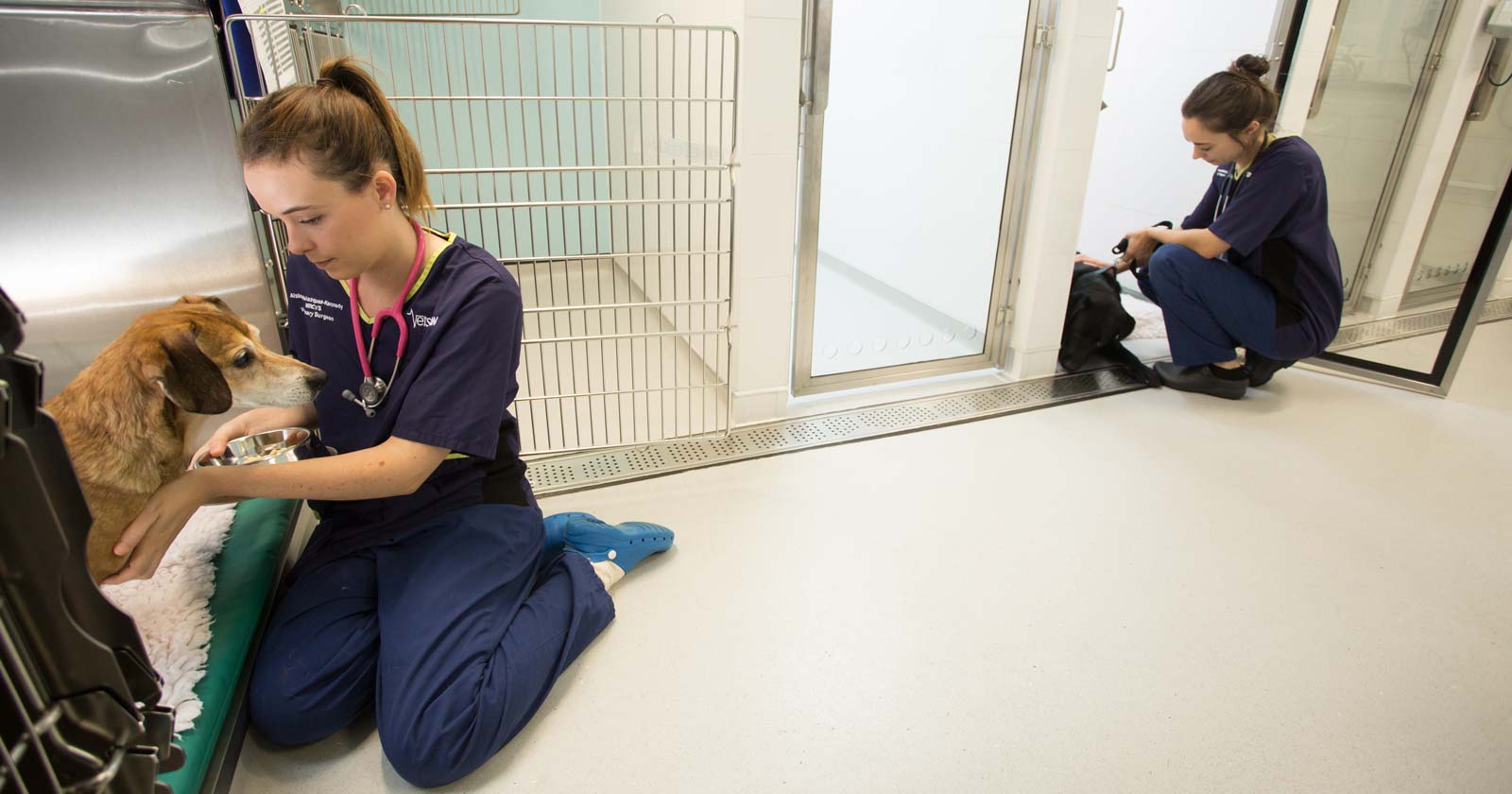
And those interns – as well as everyone else in the profession – will certainly have had an experience like no other during the past five months of the coronavirus pandemic. For Phill there have been many changes and challenges, but one of the biggest has been finding more effective ways to communicate.
He added: “From a leadership point of view that has been the hardest part – how do you communicate with a team you don’t see? On a normal day I would be able to go out and chat to people and help, but when I wasn’t on the same team as some people that was made a lot harder.
“I have had to adjust my style of communication; I had not done too many video calls before COVID and I was not a particular fan of them to be honest, but they have now become second nature to everyone.
“But it has meant thinking about the way communication is done, I have been a little bit more direct in terms of the decision-making process, and explain what decisions have been taken and why those decisions have been taken. It is all about being clear and transparent – clear communication has been vital.
“For me that direct approach is a bit more unusual as the modern management style is a lot more collaborative, and there are much more temperature checks going on and much more discussion around decisions.
“Because of the way things were in the crisis, you do have to be more direct, which is an adjustment if that is not the way people have worked previously and I think that has been a challenge for lots of people in lots of different practices.”
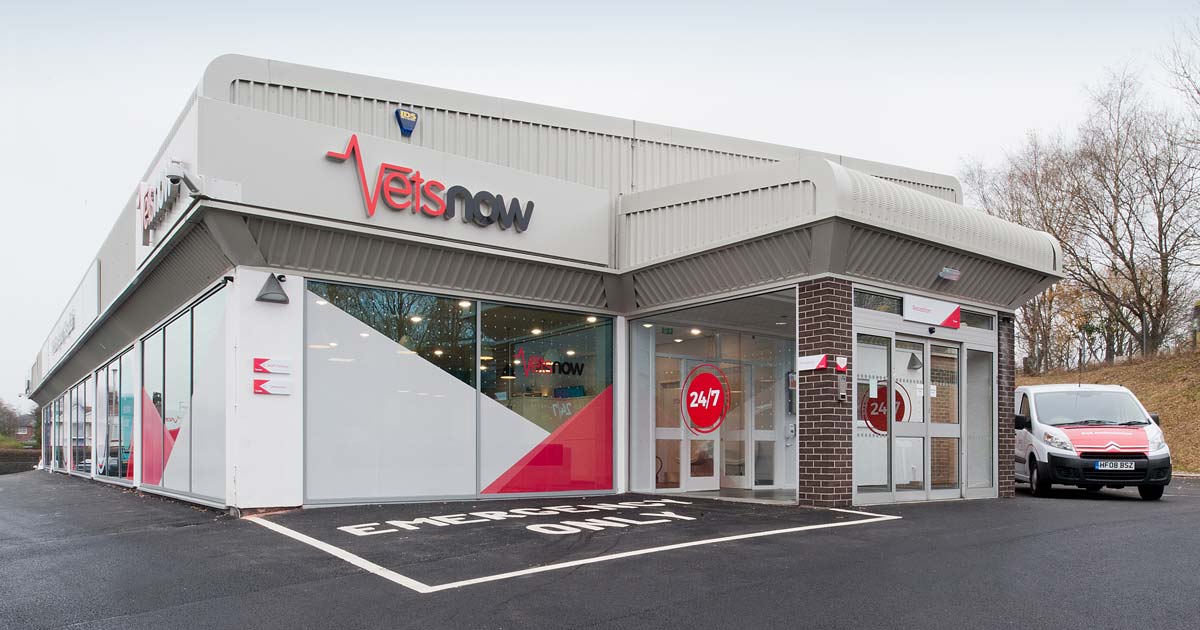
With the gang all back together, it seems Vets Now Hospital Manchester has ridden out the crisis better than some – so much so that Phill is actively looking to expand the service offered by the hospital and is now recruiting more staff.
But despite this confidence, as Phill concedes it remains a real challenge to plan for the future in the current climate.
He said: “The big word is uncertainty. We have been through this crisis and the hospital has performed well; we are back to a full team again now and we are still looking at expanding our service level – we have vacancies out there for a specialist ECC clinician and a specialist medic, so we are still wanting to build and improve the service in Manchester.
“The looming recession? We just don’t know what the scale of that is going to look like and how it will impact us.
“I still think that, given how things have been for us throughout, I am confident that we should do well – we just have to be careful. We are still trying to grow and that is the important thing.”